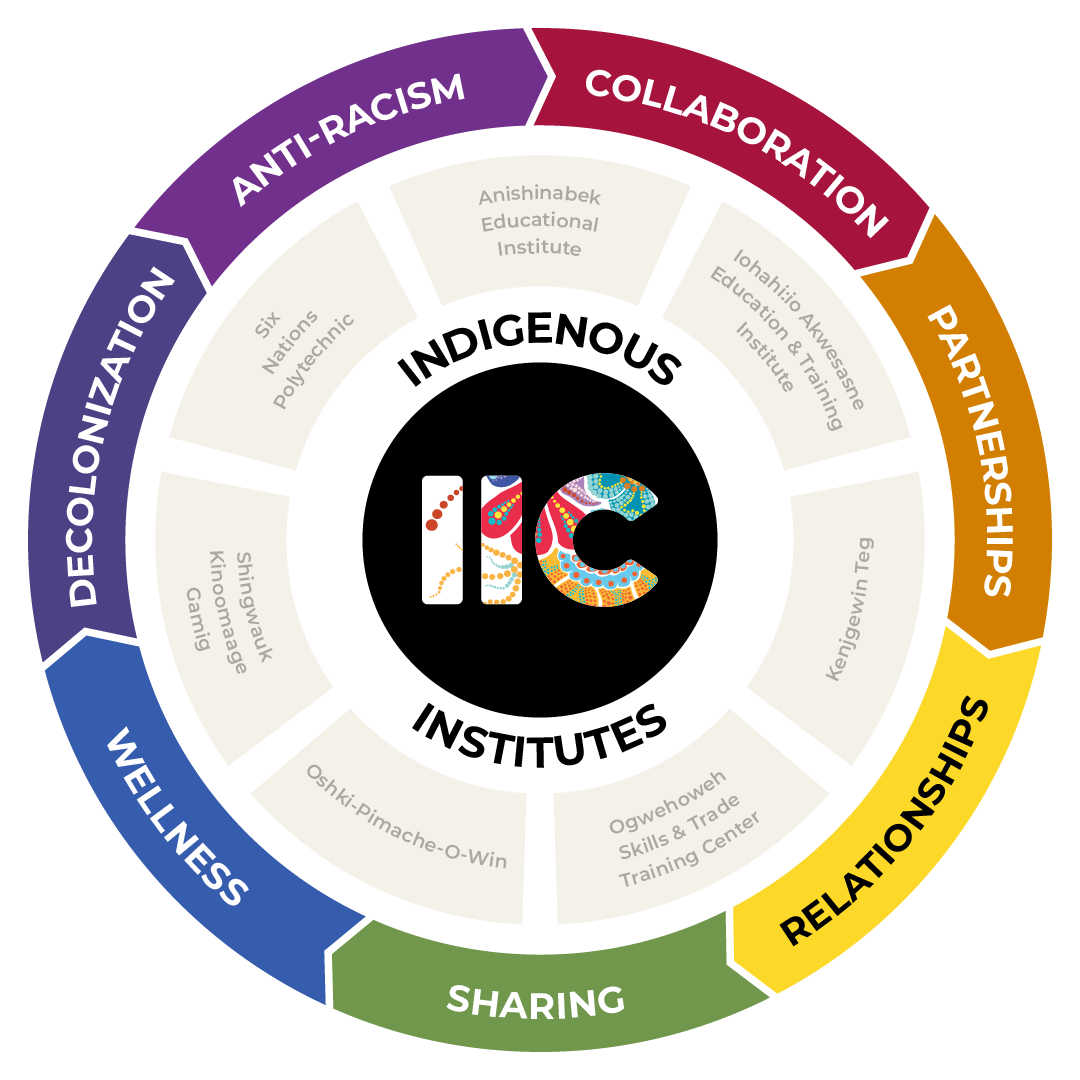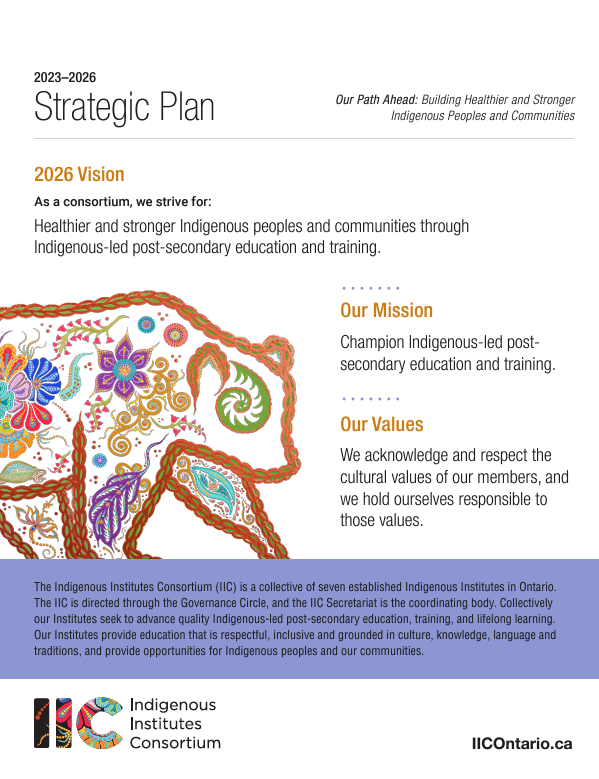ABOUT IIC
Global Capacity, Growth, and Recognition.
We support Member Institutes to advance post-secondary Indigenous education innovation, through partnerships and collective collaborative approaches.
The Indigenous Institutes Consortium (IIC) represents the collective and collaborative efforts of its seven Indigenous-owned and operated education and training institutions across Ontario. Since 1994, the IIC has successfully raised the awareness and profiles of Member Institutes, learners and communities. It was an instrumental mechanism in the establishment of Ontario’s Indigenous Institutes Act in 2017.
The IIC provides support to the Indigenous Institutes as directed by its Governance Circle and in compliance with the IIC three-year strategic plan and governance polices. The Member Institutes are built on the foundation of Indigenous ways of knowing and being. They continue to be deeply committed to preserving and strengthening Indigenous languages, traditions, and culture, and play essential roles in the promotion of cultural learning and language acquisition. Lifelong learning is essential in supporting the needs of First Nations communities who mandate each of the Indigenous Institutes.
DID YOU KNOW:
Indigenous institutions have successfully delivered post-secondary programs and services in Ontario since 1985 and currently deliver programs to 4000 learners per year.
Vision
As a consortium, we strive for: Healthier and stronger Indigenous peoples and communities through Indigenous-led post-secondary education and training.
Our Mission
Champion Indigenous-led postsecondary education and training.
Our Values
We acknowledge and respect the cultural values of our members, and we hold ourselves responsible to those values.
Governance
The IIC Governance Circle provides oversight to the IIC Secretariat. The Circle is comprised of directors appointed by and from each Member Institute. The IIC Secretariat is led by the Executive Director.
Following the Carver model of governance, these policies have been created by and adopted by the Governance Circle Members. The Policies are aligned with the Corporate By-Laws pursuant to the laws of Ontario. A policy is a value or perspective. Two key categories include:
- Governance Process and Governance Circle-Management Delegation
- These policies are the rules for the Governance Circle’s own performance and behaviour.
- Ends and Operational Risk Limits
- These policies are the Governance Circle’s instructions to the staff/organization, through the Executive Director.
The Executive Director and Governance Circle ensure that the IIC achieves its Ends and maintains full compliance with the Operational Risk Limits policies through evidence-based monitoring reporting six times each year.
It is crucial to good governance that all Governance Circle Members be highly knowledgeable with its IIC Governance Policies. Ongoing education, training, monitoring and evaluation, is a key element of its governance structure.

Ogwehoweh Skills and Trades Training Centre (OSTTC)

Six Nations Polytechnic

Anishinabek Educational Institute
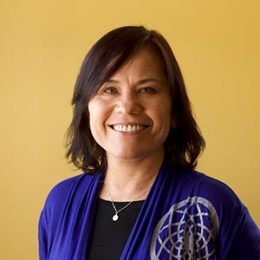
Iohahi:io Akwesasne Education & Training Institute
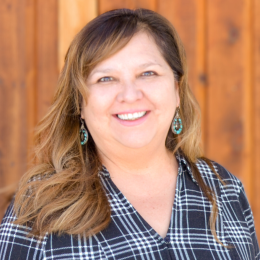
Kenjgewin Teg
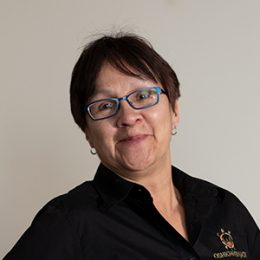
Oshki-Pimache-o-win
The Wenjack Institute
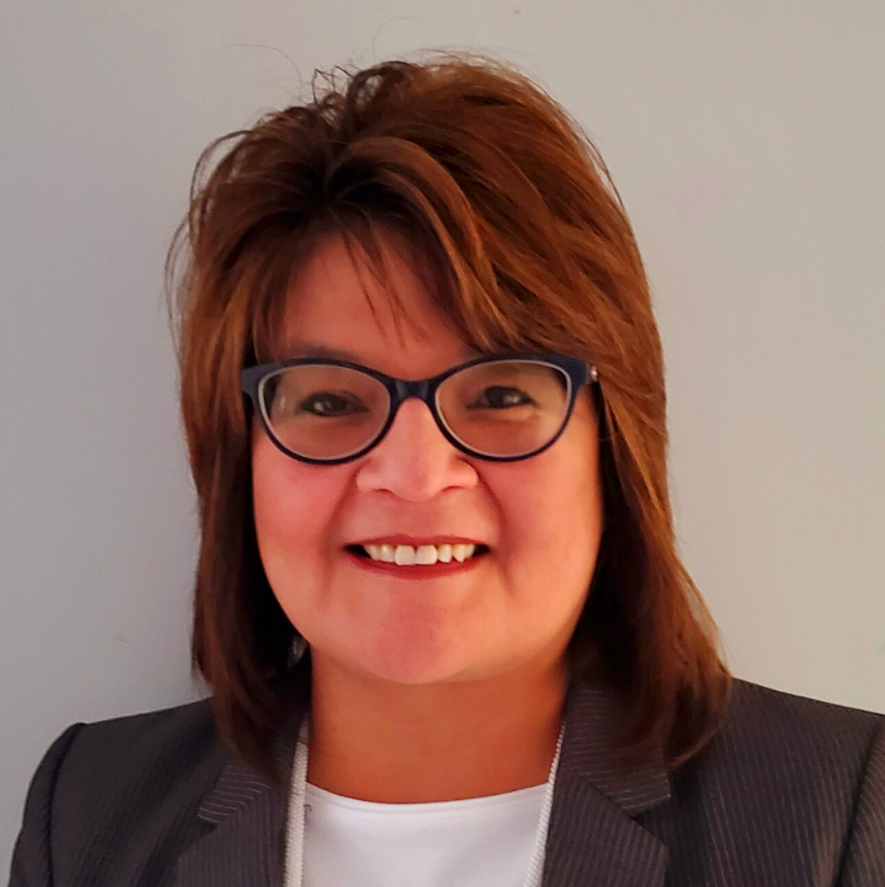
Shingwauk Kinoomaage Gamig
Marsha Josephs,
Executive Director
Marsha Josephs is a strategist, natural collaborator, and effective negotiator. Throughout her career, she has developed and driven domestic and international strategies which have resulted in unprecedented growth. Marsha has experience as a senior leader in the Ontario Public Service and non-profit organizations, with expertise in post-secondary education. For over 15 years, Marsha has dedicated her work to purpose-driven organizations and Indigenous communities. As a sought after thought-leader, Marsha is often requested to provide advice at national, provincial, and international advisory committees. As a passionate advocate, Marsha speaks at conferences on issues affecting women, youth, and entrepreneurs. She is passionate about creating an inclusive and diverse society and generating prosperity for all.


